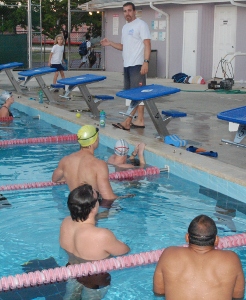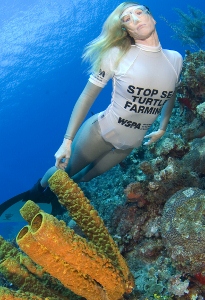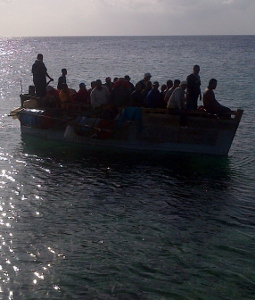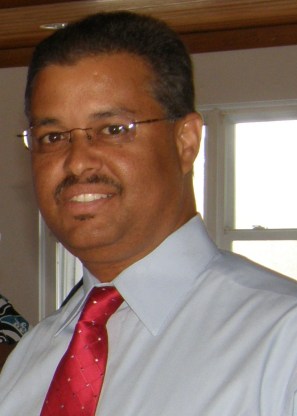Archive for February, 2013

Coaching starts ahead of annual sea swim
 (CIASA): The CIASA Masters Swim Programme at the Lions Aquatic Centre is coached by Mike Barrowman, a Caymanian who is also a former competitive swimmer, Olympic champion and world record-holder. Now in its 13th year, the CIASA Masters’ program has had nearly 4000 participants since it started. It takes place on Monday and Thursday evenings from 6-7pm at the Lions Pool, costs only CI$5.00 per session and has earned a reputation as being an efficient, yet relaxed and welcoming training environment. With an average of four swimmers per lane there is plenty of space; and each week three separate workouts are written for three differing tiers of ability.
(CIASA): The CIASA Masters Swim Programme at the Lions Aquatic Centre is coached by Mike Barrowman, a Caymanian who is also a former competitive swimmer, Olympic champion and world record-holder. Now in its 13th year, the CIASA Masters’ program has had nearly 4000 participants since it started. It takes place on Monday and Thursday evenings from 6-7pm at the Lions Pool, costs only CI$5.00 per session and has earned a reputation as being an efficient, yet relaxed and welcoming training environment. With an average of four swimmers per lane there is plenty of space; and each week three separate workouts are written for three differing tiers of ability.
With the Annual Flowers Sea Swim almost upon us, these custom workouts allow
swimmers from novice to experience who want to tackle the swim the opportunity to
get ready for it.
The sessions are not developed as a lesson; rather they are designed to address the
goals and objectives of swimmers of all ages over 18 who want to get in to, or stay in,
shape; as well as for those who are training for the popular sea swims and triathlons.
“I base the workouts on an extensive knowledge base of swimming science background
and develop them to be as efficient as possible – we achieve more in an hour than most
do in two,” said Barrowman. “We use exercises designed to improve the mechanics of
swimming via specific stroke drills. This was my specialty when swimming – we created
a new technique, new methods of training efficiency that are still cutting edge to this
day. I use these techniques in the CIASA Masters’ program and provide swimmers with a
uniquely efficient training system.”
Barrowman, the pioneer of the "wave-style" breaststroke technique brings a strong
pedigree of excellence to his Masters’ Programme having placed fourth in the 1988
Summer Olympics in the 200-meter breaststroke; being named Champion of the World
in the World Championships in Perth Australia, in 1991 and returning to the Olympics in
Barcelona in 1992 where he won the gold medal in the 200m breaststroke in world
record time. And he was the Men’s 200m breaststroke world record-holder (long
course) from 4 August 1989 to 2 October 2002 … a record in itself as he held it for 13
years until it was finally broken by Kosuke Kitajima of Japan.
He now works locally at Butterfield Bank, and is a part-time master’s swim coach in the
Cayman Islands.
For more information on the CIASA Masters’ Swim Programme email
Mike Barrowman at ciasaboard@gmail.com or just show up and introduce yourself on
deck at the pool.

No sign of development of promised techy park
 (CNS Business): It is now almost twelve months since officials representing Cayman Enterprise City (CEC), the islands’ first Special Economic Zone, said it was about to break ground on its proposed campus somewhere in Savannah. However, despite registering some 44 companies in the zone, which are using leased office space in George Town, there is no sign of the new development. The location of the campus, which the owners said would be the home to a collection of specialist parks in the arenas of science and technology, among others, has still not been officially revealed nor has any start date been given for the commencement of construction. Read more on CNS Business
(CNS Business): It is now almost twelve months since officials representing Cayman Enterprise City (CEC), the islands’ first Special Economic Zone, said it was about to break ground on its proposed campus somewhere in Savannah. However, despite registering some 44 companies in the zone, which are using leased office space in George Town, there is no sign of the new development. The location of the campus, which the owners said would be the home to a collection of specialist parks in the arenas of science and technology, among others, has still not been officially revealed nor has any start date been given for the commencement of construction. Read more on CNS Business

900 turtles killed for meat in 2012, CTF reveals
 (CNS): The Cayman Turtle Farm has said that over 900 turtles were killed in 2012 to satisfy the local demand for meat, which is only around 10%-15% of the animals held at the farm. However, stepping up the criticism of the WSPA campaign to change it into a conservation facility, the farm’s director said that if it did not supply this local demand, people would poach the animals from the wild. Criticising Cayman’s internationally renowned free diver, Tanya Streeter, for her support of the campaign, Tim Adam said the farm was “saddened” that Streeter, who grew up here, has chosen to align herself with the WSPA, “an organisation that appears to be fuelled by sensationalising, misleading information” about the CTF. (Photo by Patrick Weir)
(CNS): The Cayman Turtle Farm has said that over 900 turtles were killed in 2012 to satisfy the local demand for meat, which is only around 10%-15% of the animals held at the farm. However, stepping up the criticism of the WSPA campaign to change it into a conservation facility, the farm’s director said that if it did not supply this local demand, people would poach the animals from the wild. Criticising Cayman’s internationally renowned free diver, Tanya Streeter, for her support of the campaign, Tim Adam said the farm was “saddened” that Streeter, who grew up here, has chosen to align herself with the WSPA, “an organisation that appears to be fuelled by sensationalising, misleading information” about the CTF. (Photo by Patrick Weir)
“We are also disappointed that the WSPA appears to be continuing to expend its resources and funding on a promotional campaign to discredit the Farm, rather than working directly with us to support the improvements we are making in response to the inspection report, or even putting their resources into undertaking actual work in the conservation of sea turtles," Adam added. “We would like to see evidence of tangible conservation efforts the WSPA has contributed on behalf of the Green Sea Turtle in the Cayman Islands.”
Claiming conservation credentials for the CTF, Adam said that Streeter, who was photographed (see above) swimming with wild turtles as part of the WSPA campaign, was able to do that in part because of the work of the CTF. “There are now many more sea turtles seen in the wild around Cayman than there were decades ago,” Adam said. “The Cayman Turtle Farm has contributed significantly to that increase, making it possible for more visitors and residents to see turtles in the wild.”
He said data from the Department of the Environment shows an increase in the number of green sea turtles now nesting in Cayman, several of which, the director claimed, were released from the CTF.
The Turtle Farm provides legally farmed turtle meat, Adam said, reducing the incentive to take turtles from the wild than would be likely if local demand for turtle meat were not met from farmed stocks.
“A review of our turtle meat sales data shows local demand for turtle meat increasing significantly each year in 2011 and 2012. For example, for 2012 it took over 900 turtles to satisfy local demand. If the Cayman Turtle Farm does not supply the local demand for turtle meat … where does Ms Streeter or the WSPA suggest that amount of turtles will come from to allow Caymanians to continue eating turtles?” he asked.
According to the results of a freedom of information request, the numbers killed for meat over the last few years has declined from a high in 2008, when almost 1,700 turtles were slaughtered. The increase in price could have dampened demand for the meat but the stocks at the farm currently remain high. The farm has faced some difficulties in the past regarding its stocks but it is currently home to somewhere in the region of 7000-9000 animals.
The row between the CTF and the international animal charity has gathered pace, and despite claims of a more cordial position after the WSPA's recent visit, hostilities appear to have increased. The WSPA makes the case that to keep so many thousands of turtles, which are not domesticated animals, in the poor conditions at the farm to supply such a low demand for meet is fundamentally wrong.
The CTF continues to refute much of the findings of the well-documented WSPA research, however, despite photographic evidence of the overcrowded conditions, cannibalism, disease and congenital disorders. Even in the face of its own independent review, which confirmed much, though not all, of the findings of the original report from the charity, the farm still says the issues it faces are minor and can easily be addressed.
Adam said that this intensive three-day review of the farm undertaken in December by four internationally recognised sea turtle experts and conservationists had found clear value in the Cayman Turtle Farm’s research and conservation programmes.
“While the report identified some areas for improvement, which the Cayman Turtle Farm is acting upon, the assessment team’s findings also disproved several of the WSPA’s allegations against the Farm,” Adam said. “The WSPA is using Ms Streeter to represent a view that is obviously biased toward WSPA’s objectives,” Adam said.
The WSPA is continuing with its global campaign and says it is not giving up, despite the war of words, on the hope that one day the CTF will stop breeding turtles in the questionable conditions that currently exist purely for meat and switch to conservation, using better animal welfare measures to protect the animals in its care.

Youth flag football prepares for new season
(CIFFA): Entering its fifth season, The Security Centre Youth Flag Football League is organized by the Cayman Islands Flag Football Association (CIFFA), a non-profit organization dedicated to expanding the sport of flag football in the Cayman Islands. The league and its team sponsors, welcome boys and girls from ages 7 through 17 to get active in a fun and safe atmosphere. Online Registration is now open and the 2013 season officially kicks off Saturday February 16th with games played on the Camana Bay Sports field.
Spaces are limited and filling up quickly so to avoid disappointment, parents are encouraged to register youth players in advance at www.ciffayouth.com. A player registration fee of $10 covers signup and administration expenses for the full season which runs from February to early May. All registered players will receive a team uniform, as well as refreshments at each match.
Parents, players, sponsors and volunteers can visit the CIFFA Youth website for detailed information on getting involved in the upcoming season, and for regular updates on league activities.
All inquiries about The Security Centre Limited Youth Flag Football League should be directed to: Kyle Broadhurst, Youth League Organizer ciflagfootball@gmail.com

UN urges region not to deport Cubans or Haitians
 (CNS): The United Nations High Commission for Refugees is urging Caribbean countries such as the Cayman Islands, Jamaica and the Bahamas not to deport Haitian and Cuban refugees without proper screening. The agency has said it is concerned that people in need of international protection are being intercepted in Caribbean waters and being deported. In the first two months of 2013, there has been a dramatic rise in the number of boats transporting individuals in region and the UNHCR said governments should screen all individuals intercepted at sea to determine if they have a fear of persecution or other protection concerns before they are returned to their countries of origin.
(CNS): The United Nations High Commission for Refugees is urging Caribbean countries such as the Cayman Islands, Jamaica and the Bahamas not to deport Haitian and Cuban refugees without proper screening. The agency has said it is concerned that people in need of international protection are being intercepted in Caribbean waters and being deported. In the first two months of 2013, there has been a dramatic rise in the number of boats transporting individuals in region and the UNHCR said governments should screen all individuals intercepted at sea to determine if they have a fear of persecution or other protection concerns before they are returned to their countries of origin.
Since the beginning of the year, at least 217 Haitian and Cuban nationals have been intercepted in Caribbean waters, the UNHCR said in a press release. There have been interception reports off the coasts of Puerto Rico, Jamaica, the Bahamas, and the Cayman Islands.
"Elementary considerations of humanity and the fact that many countries in the region are granting asylum to Haitian and Cuban nationals when applying on land, demonstrates the absolute need for these basic procedural safeguards to be applied at sea," said Vincent Cochetel, UNHCR's Regional Representative in Washington.
UNHCR has repeatedly urged all countries involved in interdiction and rescue at sea operations to put in place screening procedures to ensure protection for refugees and asylum-seekers of all nationalities caught in mixed migration flows.
The agency stands ready to provide support to the states confronted by these maritime movements to ensure that all individuals intercepted or rescued at sea are properly screened in accordance with international human rights principles.

Misick plans to go home to face music
(CNS): The former premier of the Turks and Caicos Islands, Michael Misick, who was released from a high security prison on Friday, has said he is still intending to voluntarily return to the TCI to clear his name in an alleged corruption scandal in the British territory. He claims that if he is given a fair trial, it will be proven that the accusations against him are politically motivated. Misick was arrested in December in Brazil on an international arrest warrant but has not been charged with any crime and has said that he continues to make "reasonable” proposals to the prosecution team in TCI to allow him to voluntarily return.
"I have not sought to stay out or evade justice as is being falsely portrayed,” the 47-year-old former premier said in his latest media release. “I have set out my proposals for my voluntary return, which simply seek to ensure that my colleagues and I receive a fair and public trial in accordance with the laws of the TCI prior to the coup of 2009, including the right to a trial by a jury.”
Misick suggested that if the UK authorities were serious about a fair trial, they should have no difficulty in accepting the proposals, adding that he was looking forward to returning home to continue the struggle for what he described as true freedom and self-determination in reference to his campaign for independence from the UK.

Gender gaps in education
The gender disparity in educational participation and achievement is not a new phenomenon, and it certainly is not unique to Cayman. This complex and often emotive issue is one that has been discussed, debated and researched across the globe for several decades. Traditionally, girls have been at a disadvantage to accessing education in most parts of the world, and this continues even today.
The recent headline of the 14-year-old Pakistani teenager, Malala Yusufzai, who was shot by the Taliban for campaigning for girls to be allowed to go to school, is a very real reminder that not all is equal when it comes to boys’ and girls’ access to education. From a global perspective, the gender gap in access to primary education participation actually favours boys. However, over the past 15 years, the World Bank reports that progress has been made in closing the gender gap in primary education with nearly 2/3 of all countries achieving gender equality in primary education.
In the Cayman Islands, the 2010 Census reported a higher percentage of females aged 15-24 attending school for both full-time and part-time study, and 18.3% of females aged 15 years and older had passed no examinations compared to 21.5% of males in the same age group. A nearly equal percentage of males and females had a secondary school diploma, but females in the Cayman Islands were more likely to have an Associate’s Degree or Bachelor’s Degree or higher. Males, however, were more likely to have a vocational or trade certificate or diploma.
Among persons aged 20 years or older in Cayman, both Caymanian females (23.2%) and Non-Caymanian females (35.9%) were more likely than their male counterparts to hold a Bachelor’s degree or higher in 2010. Nearly 20% of Caymanian males and just under 30% of Non-Caymanian males held a Bachelor’s degree or higher.
While females held higher educational qualifications in Cayman, this did not translate into higher income when compared to males with the same education levels. The 2010 Census data indicated that females, on average, earned less than males at every education level. The gender gap was the widest for those with a University degree with males earning on average CI$75,291 a year compared to their female counterparts earnings of CI$57,860.
Gender ideologies and education
The discussions of gender dynamics in education in the English-speaking Caribbean have undergone significant shifts. In recent years, educational retention, completion and attainment by boys in the Caribbean appears to be slipping while girls have improved in these areas. Gender ideology or ideas about what it means to be a boy or man are one of the root causes of gender disparitiesin relation to the issue of education.
Research in the United States has indicated that boys' academic performance relative to girls has been dropping for decades. Boys are more likely than girls to earn poor grades, be held back a grade, have a learning disability, form a negative attitude toward school, get suspended or expelled, or drop out of school. Boys and men are just as capable as girls and women of succeeding in educational systems; however we have to examine and address at a macro level what it is that causes boys to retreat from the classroom and men to under participate in education systems.
Boys construct their identity by modeling behaviours that differentiate themselves from girls. Therefore as girls participate more in learning and excelling in school, it has become “taboo” for boys to do the same when they define their gender identity in opposition to girls. Boys then seemingly retreat to physical dominance – in the positive form of sports or in the negative form of bullying and physical violence – to prove their gender identity within the school environment.
Girls and women on the other hand see schooling and education as an investment or insurance for the future. Education benefits girls in a variety of way such as increased wages, reduced teen pregnancy and infant mortality, better health, delays in having children, and it is often a way for women to ensure that their children are also educated and provided for in a healthy way. Simply put, educating girls and women has a positive multiplier effect, and it has been identified as one of the best ways in which to decrease poverty.
When boys feel they need to live up to stereotypes that have been created by society about what it means to be a boy or man, there are important negative consequences such as academic underachievement, bullying, harassment, crime and violence. The issue of gender disparity in education is therefore not a “boy crisis” but a “masculinity crisis”.
Misconceptions about gender and education
Often times the discussions of gender gaps in education get watered down to a “battle of the sexes” misconception that pits boys against girls. However, this is not a “boys vs. girls” issue, but it is one that benefits from using a gender lens to examine the issues that have been identified. Girls are not benefiting now or in the long run from this trend of negative male participation and performance in education.
Another misconception is that the past and current efforts of improving girls’ education and women’s empowerment have resulted in boys being negatively impacted in the education system. The reality is that boys don’t face formal discrimination in school settings the way that girls have and continue to face in many societies around the world, and boys underachievement in schools certainly has not translated into the secondary position of men or gender under-privileging when it comes to income or participation in the workforce. In order to have the positive effects of gender equality on society, we must ensure that females and males are advancing together in education systems.
How can this affect us in the long run?
The gender gaps in education can have a negative impact on the workforce and economy. They also can affect marriage rates, the composition of families and society as a whole. Data from the United States indicates that college enrolment is higher than ever with women outnumbering men by four to three; the opposite was true 40 years ago. The problem is not that more women are attending college; the problem is that men aren't attending college at the same rate.
Consequently, this disparity in education levels combined with other stereotypes about feminine and masculine roles and relationships can affect the prospect of marriage partners. If women choose not to marry at all rather than marrying men who have lower educational attainments or are likely to earn less than they do and if men are not interested in pursuing women who are more educated than them or have successful careers, then this can decrease the opportunity to create nuclear families with a mother and father present. This also increases the probability of single female-headed households and fatherless families, which can have a variety of negative impacts for the society as a whole.
Addressing the gender gaps in education is a complex matter. The problems that are created as a result of these gaps are often inter-related and the stereotypes about gender roles compound the negative effects of inequality in educational opportunities. Therefore the solutions require a multi-disciplinary approach from a wide range of the key stakeholders both inside and outside of education systems.

Chuckie challenges PPM
 (CNS): Former tourism minister, Charles Clifford, has challenged his old political colleagues to use the current government’s minority status to get the elections law amended and introduce one person, one vote (OPOV) in single member constituencies (SMC) at the election that follows the one that will be held in May 2013. Although it has been confirmed bythe Elections Office that it is too late to introduce that system of voting for the 2013 General Election, which is just fifteen weeks away, in order to remove any doubt about the PPM’s support for the change of voting, Clifford says the opposition should withhold its support for all government legislation until Cabinet agrees to change the elections law.
(CNS): Former tourism minister, Charles Clifford, has challenged his old political colleagues to use the current government’s minority status to get the elections law amended and introduce one person, one vote (OPOV) in single member constituencies (SMC) at the election that follows the one that will be held in May 2013. Although it has been confirmed bythe Elections Office that it is too late to introduce that system of voting for the 2013 General Election, which is just fifteen weeks away, in order to remove any doubt about the PPM’s support for the change of voting, Clifford says the opposition should withhold its support for all government legislation until Cabinet agrees to change the elections law.
In a statement released to the press, Clifford admits that if an administration is elected in May that does not support the law, it could be repealed but it would be "committing political suicide" to do so. This amendemnt would, therefore, demonstrate that the PPM’s support for OPOV is real and not just an empty election promise.
Opposition Leader Alden McLaughlin has stated on several occasions that the PPM would introduce OPOV if it wins the May election and that he and the party were committed to the more democratic voting system. On numerous occasions McLaughlin has said that the current system, especially now that voters in the capital have six votes, is simply unfair.
The PPM has, however, stated that they would support the district of Cayman Brac and Little Cayman remaining a two-member constituency, with each voter having one vote and the two candidates with the mosty votes gaining a seat in the LA.
Nevertheless, the PPM leader has persistently been criticised for what appeared to be his late support for the referendum campaign and because he did not support the Coalition for Cayman when it called for government to implement the style of voting for the May election, although the election writs had already been issued and any change to the election law would have put back the election by many months.
The issue has become a debate between the various C4C supporters and the PPM, even though the two groups both say they are in favour of the change and the only group which has persistently opposed OPOV is the UDP.
In his statement Clifford falls short of accusing his former PPM and Cabinet colleague of not supporting OMOV but indicates that, despite his efforts to persuade the party to adopt the system during its time in office between 2005-09, it failed to do so. Although it was in the proposed constitution, Clifford accuses the other members of the PPM, with the exception of Arden McLean (who has since resigned from the party), of being less than enthusiastic about fighting to keep the proposal in the constitution when the UDP refused to support it.
Clifford told CNS that the PPM had fought harder over other disagreements on proposals in the constitution than on the OPOV issue because not everyone in the PPM was fully supportive of OPOV in single member constituencies. In his letter to the press, Clifford states that he was a member of the PPM’s negotiating team during the constitution talks and he believes the public is right to question sincerity of the leader of the opposition when he says that he fully supports one person one vote.
“The public is also right to question whether the PPM will implement this new system of voting if the party is elected in a majority in May of this year,” Clifford said, despite McLaughlin’s persistent statements that the PPM will implement OPOV for the 2018 election if it is elected to office .
Clifford said he had proposed amendments to the elections law to change the voting system to the PPM party caucus back in 2007, adding that there were many opportunities to implement the change during the PPM’s term in government but it never happened.
With a minority government now in office, Clifford said the opposition leader could convince the voting public of his sincerity if he encouraged the minority government to bring the amendments to the elections law to allow for the implementation of OPOV and SMCs for the general election which follows the one that will be held in May 2013.
“We know that there are some members of the current Cabinetwho say that they support this more fair system of voting,” Clifford said, as he asked McLaughlin to take advantage of its weakness by asking for amendments to the elections law in the next parliamentary sitting in exchange for the opposition’s support for the other draft legislation government needs to bring, using what he called the art of compromise.
However, most of the current Cabinet spoke against OPOV during the debate in the LA and the UDP members are also all against it, so this would require either a voluntary shift by the new government or the reluctant support for something they do not support in order to pass legislation, some of which is required to balance the budget.
Clifford said he expected that he would be subjected to a “Shoot The Messenger” lecture suggesting his proposal will not work because one government cannot bind a subsequent government and that laws can be changed or that the opposition is not responsible for bringing legislation.
“I am very confident that all MLAs are well aware of the vulnerabilities of a minority government and that once the amendments to the Elections Law are passed and assented to by the governor, any subsequent government that attempts to repeal the law implementing OPOV and SMCs will be committing political suicide,” he added, warning that there might not be another opportunity to do this again in the near future.
“It’s time for the real test on OPOV and SMCs,” Clifford said. “The question is: Will they take the test?” he asked, referring to his former political colleagues in the PPM.
See full statement below.

Campaign starts as drivers ignore road laws
 (CNS): With the continued poor standard of driving on Cayman’s roads, especially with people ignoring the new phone bans and the old DUI laws, the RCIPS and Streetskill team are launching a campaign against drunk drivers and people using their cell phones behind the wheel. Since the start of the New Year, Streetskill spokesperson, Chief Inspector Angelique Howell, says that 80 people have been prosecuted for mobile phone use while driving, and 25 arrested for drunk driving. There were 1,245 traffic accidents in 2012, as well as five fatalities and 191 people were arrested for DUI, including the government’s own education minister.
(CNS): With the continued poor standard of driving on Cayman’s roads, especially with people ignoring the new phone bans and the old DUI laws, the RCIPS and Streetskill team are launching a campaign against drunk drivers and people using their cell phones behind the wheel. Since the start of the New Year, Streetskill spokesperson, Chief Inspector Angelique Howell, says that 80 people have been prosecuted for mobile phone use while driving, and 25 arrested for drunk driving. There were 1,245 traffic accidents in 2012, as well as five fatalities and 191 people were arrested for DUI, including the government’s own education minister.
“We hope that people will understand that in both cases there are safer alternatives,” said CI Howell. “If you need to use the phone, pull over to the side of the road. If you are going drinking, arrange for a designated driver. These arrangements may seem very simplistic, or even inconvenient, but they could save your life and those of your family and friends."
In February the campaign will target drivers using mobile phones by highlighting the risks that they pose to themselves, and in March the campaign switches to preventing drunk driving. This year’s campaign will be delivered primarily through media appearances by Howell and other Streetskill members, as well as through public service announcements and social media.
CI Howell said that research in the United States has shown that driving while using a cell phone reduces the amount of brain activity dedicated to driving by more than a third (Carnegie Mellon 2007). Meanwhile, a Yale study in 2004 confirmed that the amount of alcohol that a driver ingests impairs decision-making and increases risk-taking.
The Streetskill Team is a sub-committee of the National Road Safety Strategy Committee, a group that includes the National Roads Authority, Department of Vehicle and Driver Licensing, the Public Works Department, the Royal Cayman Islands Police Service and Government Information Services. Since 2006 it has conducted campaigns on the topics of drunk driving and mobile phone use while driving, but also bike and scooter safety, speeding, and road-crossing guidelines for schoolchildren.
Anyone who would like to obtain more information about these topics should visit the Streetskill website www.gis.ky/streetskills or send an email to roadsafety@gov.ky.

Coalition begins endorsement process
 (CNS): As expected, two of the candidates in George Town who say they are running as independents have been endorsed by the advocacy group, Coalition for Cayman. The group released a statement Monday saying that after interviewing a number of candidates for the 22 May General Election, it has offered its public support to Roy McTaggart and Winston Connolly, who are both running in George Town. C4C has said it wants to see honest leaders, free of partisan political ties, elected to office. It has not yet stated, however, if it will expect the candidates it supports to run on a joint team and platform or whether they will be campaigning in competition with each other.
(CNS): As expected, two of the candidates in George Town who say they are running as independents have been endorsed by the advocacy group, Coalition for Cayman. The group released a statement Monday saying that after interviewing a number of candidates for the 22 May General Election, it has offered its public support to Roy McTaggart and Winston Connolly, who are both running in George Town. C4C has said it wants to see honest leaders, free of partisan political ties, elected to office. It has not yet stated, however, if it will expect the candidates it supports to run on a joint team and platform or whether they will be campaigning in competition with each other.
McTaggart and Connolly are both running for office in the capital on a similar message, though neither has yet spelt out any specific policies that they support.
“Roy McTaggart and Winston Connolly will put Country First,” said C4C, pointing to its main requirement for any candidate. It commended the men’s independence from divisive political parties and their commitment to bringing ethical leadership to the LA. “We need more independent MLAs like Roy and Winston who will always do what is right for our Cayman Islands instead of what is best for party leaders,” the coalition stated in the release endorsing its first candidates.
McTaggart said, “We can never be too honest. As a CPA, I’ve followed a strict code of ethics my entire career. As a MLA, I’ll work to make ethics a priority in our government, including policies that bring more transparency to government projects and spending.”
Winston Connolly said he subscribes to the principles of the Coalition for Cayman, adding that it was time for strong, independent-minded leadership in the Legislative Assembly that “will rise above the divisiveness of party politics and offer sound, bi-partisan solutions to Cayman’s biggest challenges.”
Additional endorsements for the Legislative Assembly will be announced in the coming weeks, the coalition stated. With Jackee Haynes and Jude Scott, two of the founding creators of the coalition, having already declared for the capital, they are expected to be the next two to receive the official public nod from the advocacy group.
So far, none of the candidates that were expected to run on the C4C ticket in the districts of West Bay or Bodden Town have declared for office. There has been a dearth of declarations for independent candidates in those two districts, where there will be four votes up for grabs and where both political parties are seen as being more entrenched.
In West Bay, despite his current difficulties, McKeeva Bush is still expected to not only win his own seat with a wide margin but to carry at least two if not all three of the candidates he selects to run with him.
Although both former UDP incumbent members, Rolston Anglin and Cline Glidden, have said they are planning to run again in the district against their former UDP leader, it is not clear how. Neither man is said to be the government member likely to return to the UDP nor are either of the candidates believed to be seeking C4C endorsement. The men may run in some form of a team with at least two of their Cabinet colleagues in other districts or with other potential candidates in West Bay.
Meanwhile, the PPM is expected for field four candidates in Bush’s territory. Captain Bryan Ebanks is believed to be joining Woody Da Costa and Ray Farrington, who have already announced their intention to run with the PPM, but a fourth PPM candidate has not yet emerged for the district, which is a UDP stronghold.
In Bodden Town the PPM is believed to have a greater support in the district, with the incumbent Anthony Eden expected to be returned alongside his former parliamentary colleague Osbourne Bodden, who was pipped at the post on Election Day in 2009 by a margin of only 38 votes. Long-time behind-the scenes PPM member Wayne Panton and Al Suckoo, another well-known political activist in the district, are both considered to be serious contenders for seats in the fastest growing district.
So far, Mark Scotland and Dwayne Seymour are the only other candidates who have publicly signalled their intention to run for re-election in the district and, given the situation regarding the dump move and the connection to the former administration, the two men face an uphill struggle. Meanwhile, the UDP is believed to have selected four new candidates for the district but none of those names have yet been confirmed, with speculation about who they might be changing on a daily basis.
According to local activists in the district campaigning against the proposal to relocate the landfill in Bodden Town, one-time campaign leader Vincent Frederick has told the Coalition to Keep Bodden Town Dump Free that he will now be running for office with the former ruling party in a surprise U-turn regarding his previous opposition to the dump move. However, sources close to the district UDP officials told CNS that his name has not yet appeared on the list of potential candidates for that district.
No other independent candidates have yet come out stating their intention to run in Bodden Town, though a number of people who were on the ballot sheet in the last election are expected to be trying their hand again. Although there is considerable speculation that former Cabinet minister Charles Clifford will be running, he has not yet confirmed his intention to do so or on what platform, if any, he will mount his bid for areturn to political office.
Nomination Day is just over six weeks away, when the official race for office begins in earnest. George Town, with six seats up for grabs and some 7,500 voters to decide them, is expected to see a significant number of candidates of all political persuasions running to try and represent the capital. As a result, the elections office is gearing up for a potentially long ballot sheet and the introduction of more polling stations or booths to help keep voters moving on election day and to ensure the count, which could see as many as 18,000 people vote, can begin on time.